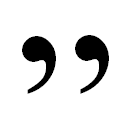

So much writing advice focuses on negative rules — “never brashly split infinitives,” “idiomatic expressions won’t hammer home your point,” “avoid cliché like the plague” — but how’s this for a positive?:
- Employ the occasional aphorism when it will clarify or otherwise bolster your argument.
The Oxford English Dictionary defines “aphorism” as:
Such rhetorical devices can be particularly effective when some aspect of moral psychology or Human Nature is the object. In this vein, here are a few of my personal favorites:
“It’s not enough to succeed. Others must fail.”
Gore Vidal (1925-2012)
“Whoever makes himself a worm cannot complain when he is then trampled underfoot.”
Immanuel Kant (1724-1804), The Metaphysics of Morals, The Doctrine of Virtue
“If you wish to be appreciated in high society, you have to let yourself be taught many things you already know by people who don’t.”
Sébastien-Roch-Nicolas Chamfort (1740-1794)
“Silence is the best resolve for him who distrusts himself.”
François, duc de La Rochefoucauld (1613-1680), Maxim 79
“The world is a comedy to those that think, a tragedy to those that feel.”
Horace Walpole (1717-1797), Letter to Sir Horace Mann, 31 December 1769
“A pessimist thinks everybody is as nasty as himself, and hates them for it.”
George Bernard Shaw (1856-1950)
Good, comprehensive anthologies of aphorisms include:
- The Oxford Book of Aphorisms
- The Viking Book of Aphorisms: A Personal Selection (selected by W.H. Auden)
- Familiar Quotations: A Collection of Passages, Phrases, and Proverbs Traced to their Sources in Ancient and Modern Literature aka “Bartlett’s Quotations”
- Cassell Dictionary of Cynical Quotations
(And speaking of cynical, if you’ve never leafed through Ambrose Bierce‘s The Devil’s Dictionary, you’re missing out on one of the great and hilarious works of American literature.)
The Library of Congress Subject Heading for this topic is “Aphorisms and Apothegms.” This is what you’d use as your search term in Catalyst. Other relevant terms include: Maxims, Proverbs, Quotations.
But be careful: just as over-salting ruins the pot, use such rhetorical spice sparingly. Like the name-dropping boor, too many aphorisms easily annoy. Know your audience and make sure the aphorism is — like pearls at a wedding reception, like cutoffs at the Dylan show, like boxed wine at the Reading — perfectly appropriate.
After all, one man’s profundity is another’s inane truism.
Please be sure to visit our Writing Guide for other tips.
